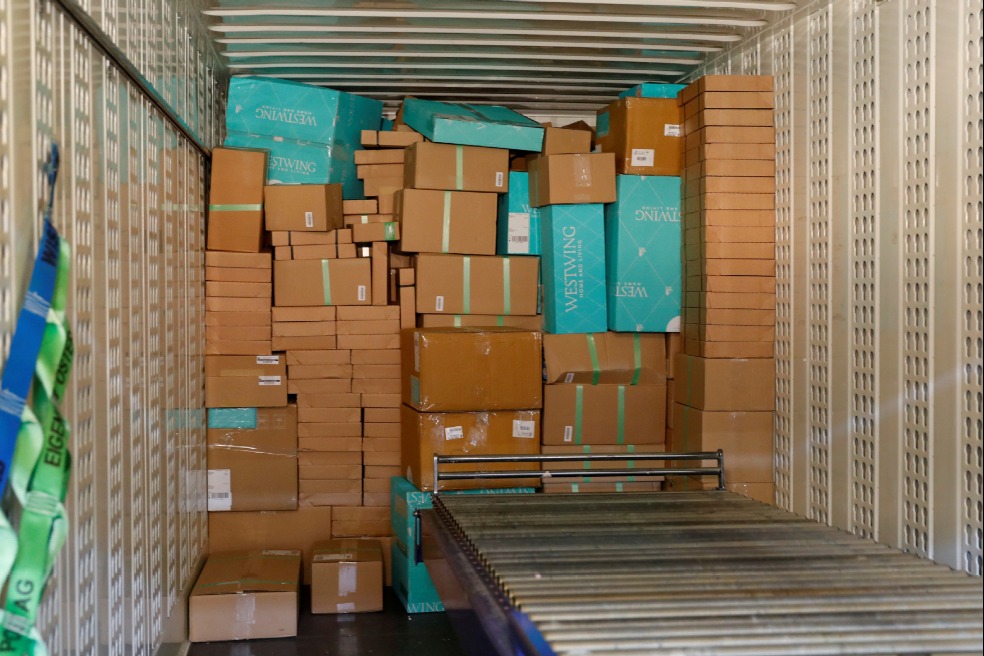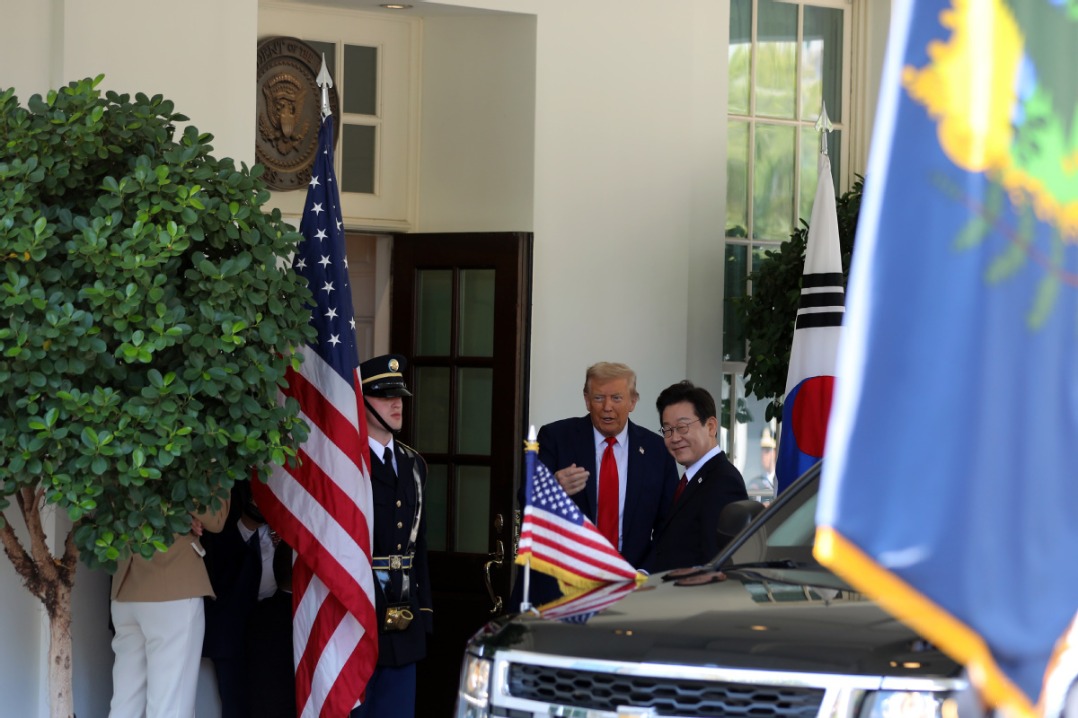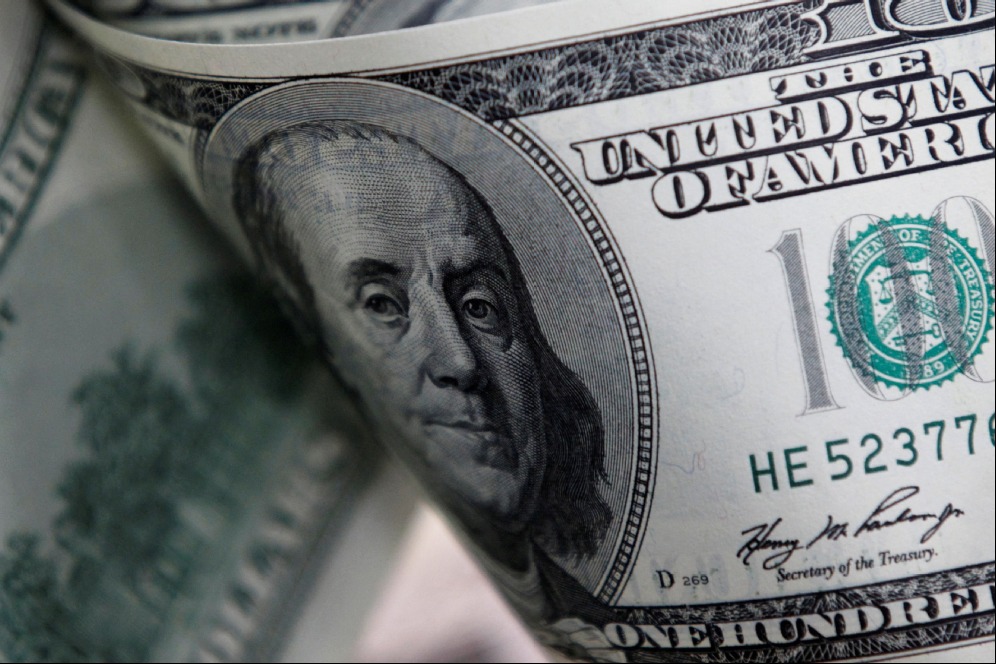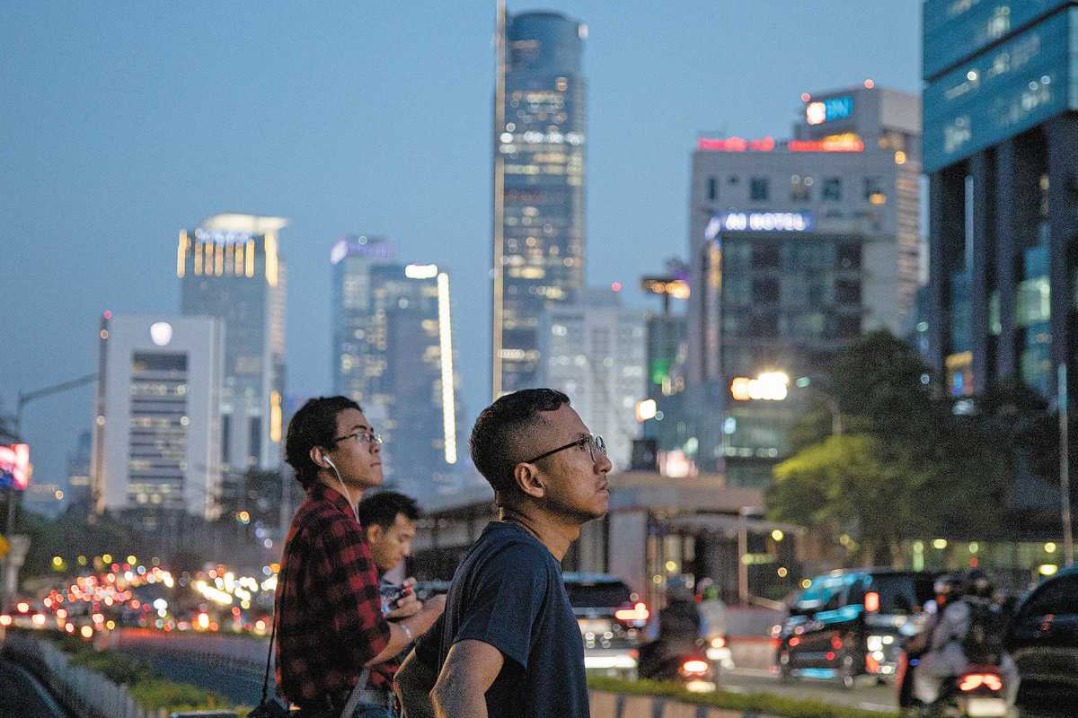Tariffs deal export shocks to India
Labor market to bear brunt as analysts fear worsening New Delhi-Washington trade links






More than half of India's exports to the United States came under serious threat as steep US tariffs on a range of Indian products took effect on Wednesday, which analysts said will deliver a strong blow to the economic ties between the South Asian nation and its largest export market.
US President Donald Trump had initially announced a 25 percent tariff on Indian goods. However, earlier this month, he signed an executive order imposing an additional 25 percent tariff due to India's purchase of Russian oil, bringing the combined tariffs imposed by the US on its ally to 50 percent and making India one of the highest-tariffed countries.
According to a report released by Barclays, a British multinational bank based in London, 70 percent of India's exports to the US are estimated to be under serious threat, accelerating downside risks to growth.
Data from the Office of the United States Trade Representative shows that last year, goods imported by the US from India totaled $87.3 billion.
Global Trade Research Initiative, a think tank based in India's capital, New Delhi, expects labor-intensive sectors such as textiles, gems and jewelry, leather goods, food and automobiles to be the hardest hit.
"The new tariff regime is a strategic shock that threatens to wipe out India's long-established presence in the US, causing unemployment in export-driven hubs and weakening its role in the industrial value chain," said Ajay Srivastava, founder of Global Trade Research Initiative and a former Indian trade official.
India's financial markets were closed on Wednesday for a Hindu festival, but its equity benchmark indexes logged their worst session in three months on Tuesday. Indian stock markets have witnessed foreign outflows of almost $5 billion since July, Bloomberg reported.
In a report issued last week, State Bank of India, the country's largest public sector bank, anticipated India's GDP growth at 6.3 percent for the entire 2026 financial year, marginally below its yearly target of 6.5 percent.
Analysts said the impact of the additional 25 percent ad valorem tariffs — calculated as a percentage of the value of goods — would be felt by several sectors dominated bymicro and small industries, which are also labor-intensive.
The tariff burden could cause considerable problems in India's labor market, said Biswajit Dhar, a former professor at Jawaharlal Nehru University's Centre for Economic Studies and Planning in New Delhi.
The Confederation of Indian Textile Industry, or CITI, has called for urgent government intervention to mitigate the impact on the sector.
"The government has been discussing with the industry how it can come to our aid during this critical juncture. But given the gravity of the situation, it is our expectation that concrete measures in the form of fiscal support and policy decisions related to raw material availability will be taken immediately," CITI Chairman Rakesh Mehra said in a statement.
On Tuesday, the Federation of Indian Export Organizations, or FIEO, said that textile and apparel manufacturers in many cities in India, including Tirupur, Noida and Surat, have already halted production amid worsening cost competition.
The US tariff move will severely disrupt the flow of Indian goods to its largest export market, said FIEO President S.C. Ralhan.
Comments from the Indian government were not available as of press time on Wednesday.
At a public rally on Monday in his home state of Gujarat in western India, Indian Prime Minister Narendra Modi emphasized the spirit of self-reliance, urging citizens and businesses to support Indian-made goods.
"For me, the interests of farmers, small businesses and dairy are topmost. My government will ensure they aren't impacted," Modi said.
K. Rangarajan, head of the Indian Institute of Foreign Trade, Kolkata campus, suggested diversification, not only in terms of finding new markets in the Commonwealth of Independent States, but also in terms of trade rearrangements.
Speaking at an event last week in New Delhi, Chinese Ambassador to India Xu Feihong said that Beijing "firmly opposes" Washington's imposition of steep tariffs on New Delhi, and he called for greater cooperation between India and China.
"The US has imposed tariffs of up to 50 percent on India, and has even threatened (to impose) more. China firmly opposes this. Silence only emboldens the bully," Xu was quoted as saying in a report published in The Times of India, a national newspaper.
Arunava Das in Kolkata, India, contributed to this story. Aparajit Chakraborty and Arunava Das are freelancers for China Daily.





























